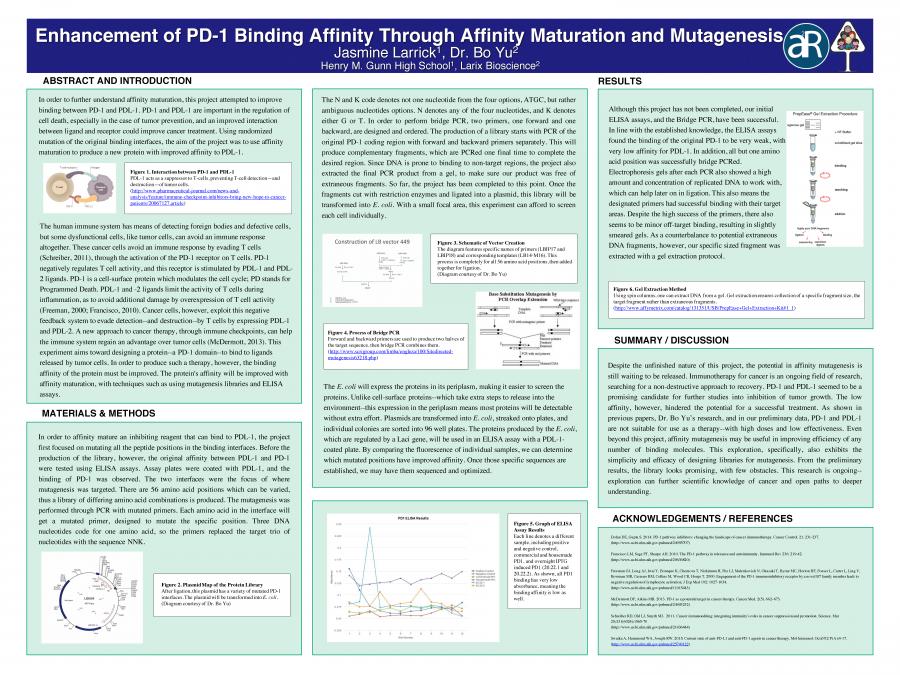Enhancement of PD-1 Binding Affinity Through Affinity Maturation and Mutagenesis by Jasmin L.
Presentation
Summary
The human immune system has means of detecting foreign bodies and defective cells, but some dysfunctional cells, like tumor cells, can avoid an immune response altogether. These cancer cells avoid an immune response by evading T cells (Schreiber, 2011), through the activation of the PD-1 receptor on T cells. PD-1 negatively regulates T cell activity, and this receptor is stimulated by PDL-1 and PDL-2 ligands. A new approach to cancer therapy, through immune checkpoints, can help the immune system regain an advantage over tumor cells. This experiment aims toward designing a protein--a PD-1 domain--to bind to ligands released by tumor cells. In order to produce such a therapy, however, the binding affinity of the protein must be improved. The protein's affinity will be improved with affinity maturation, with techniques such as using mutagenesis libraries and ELISA assays.

